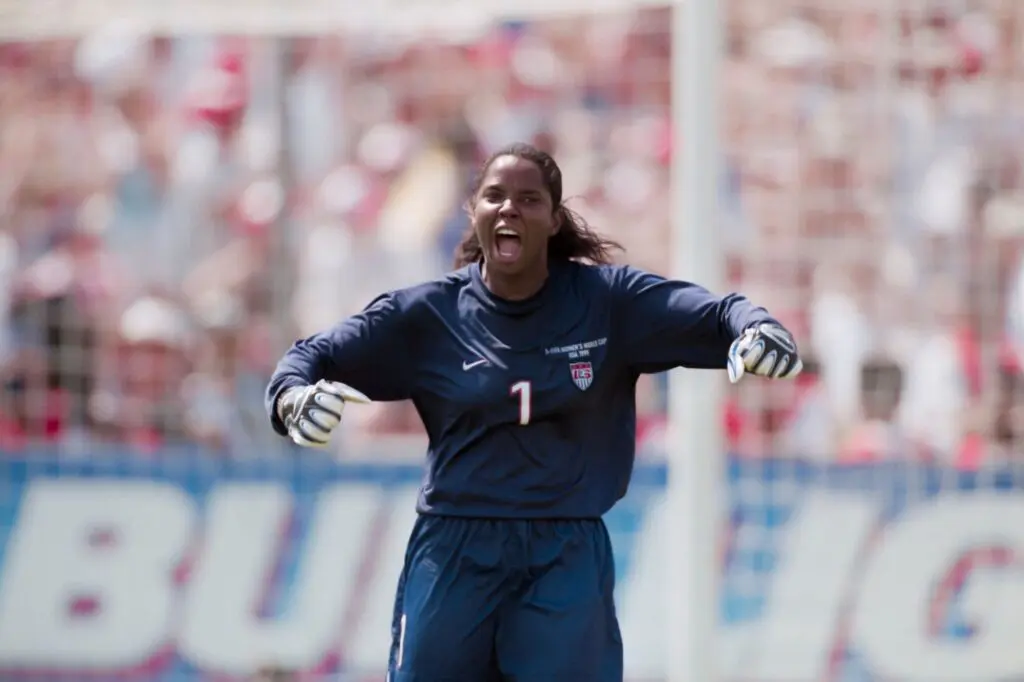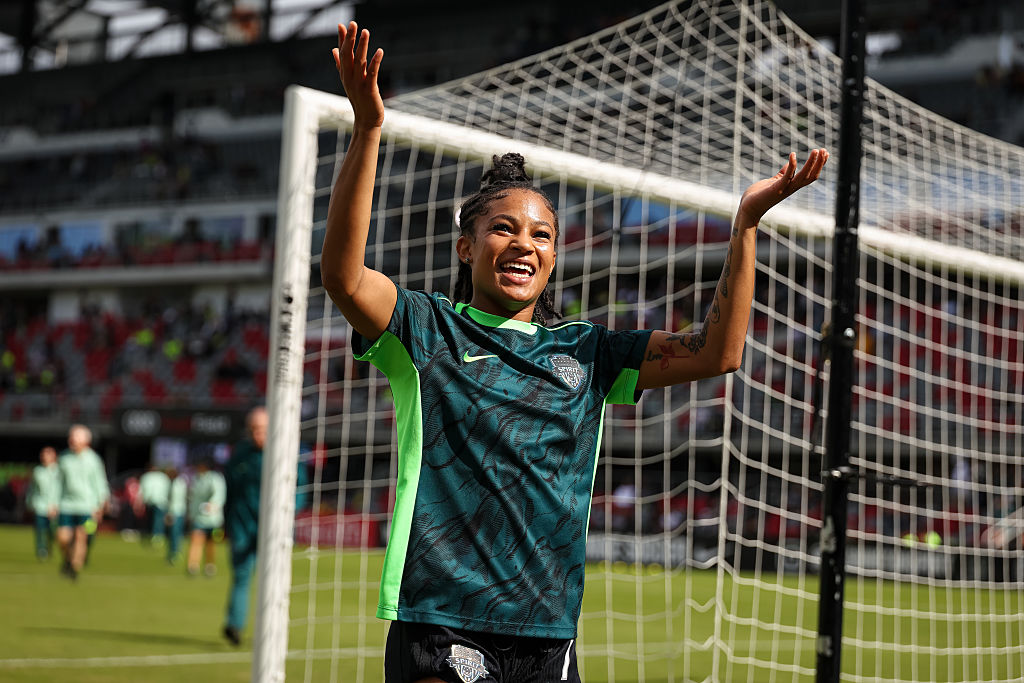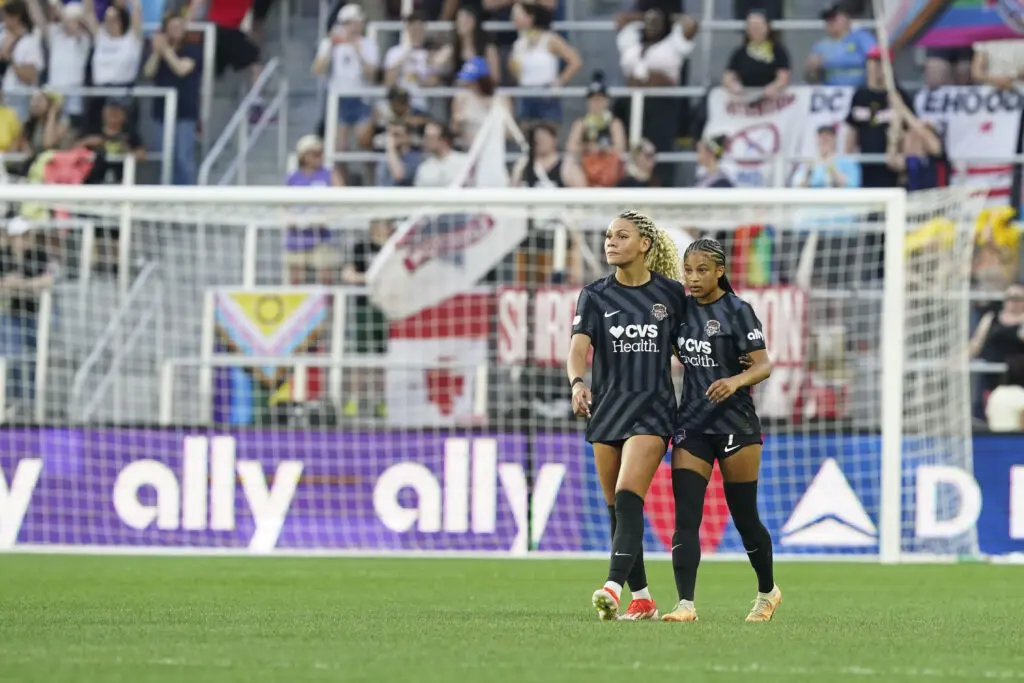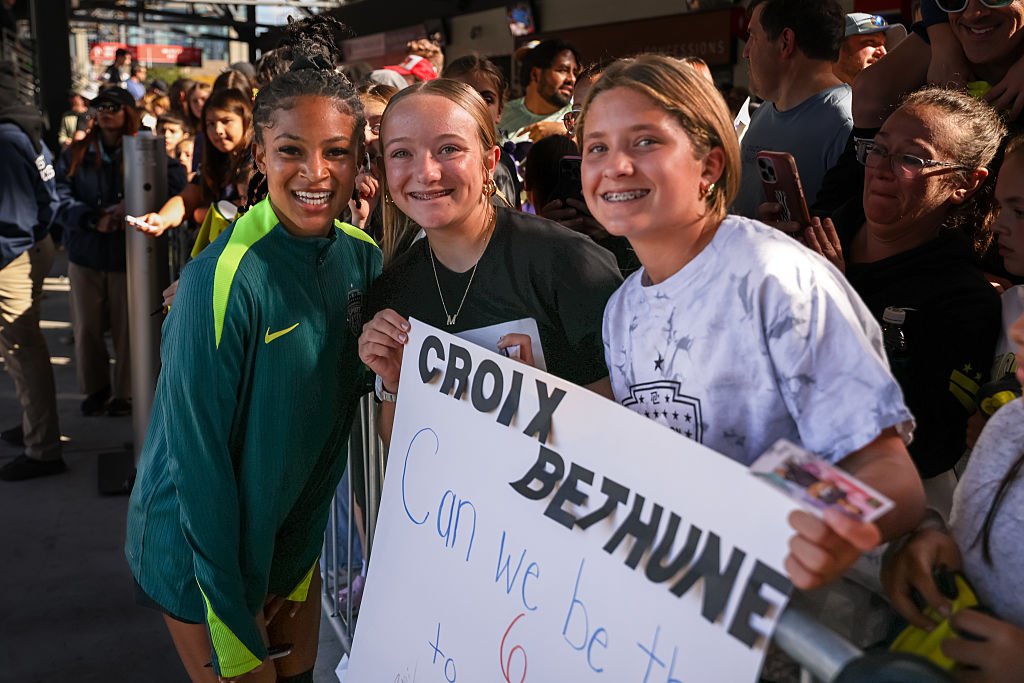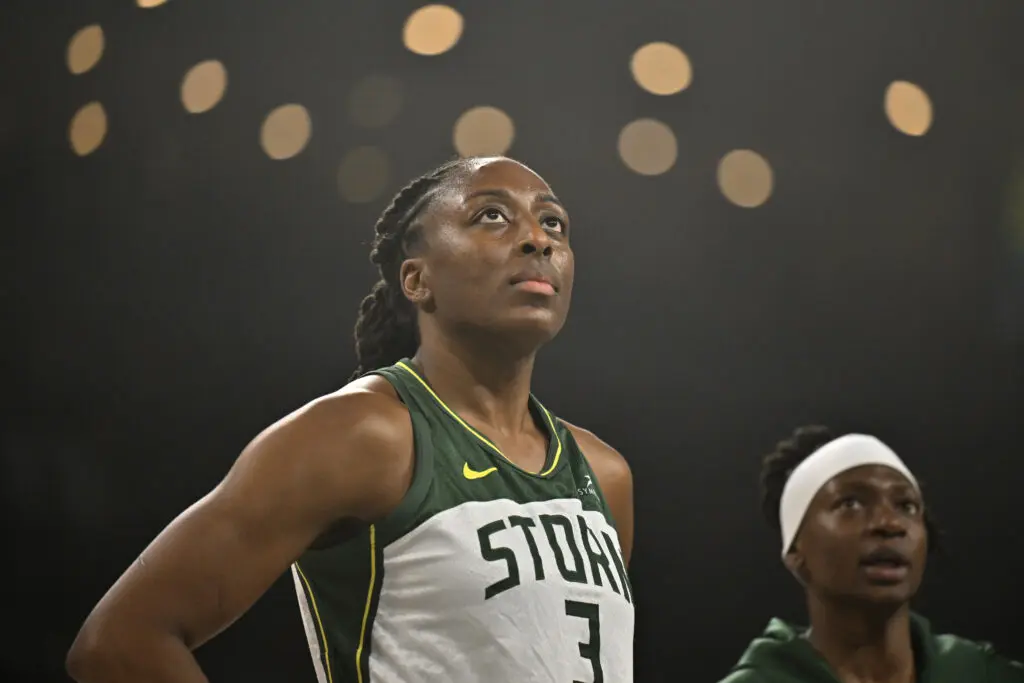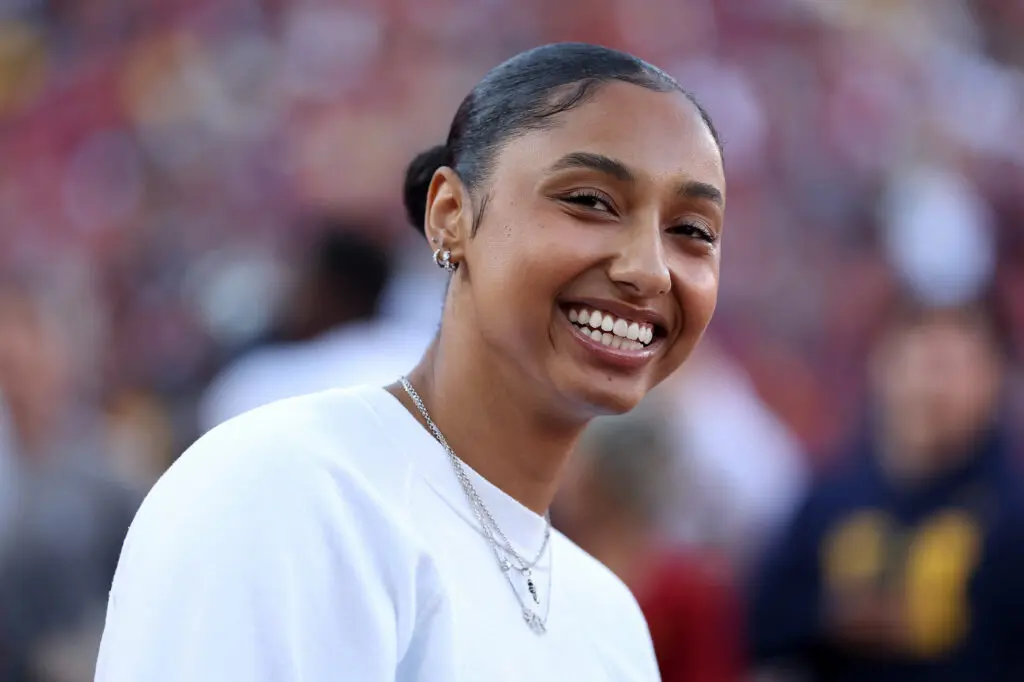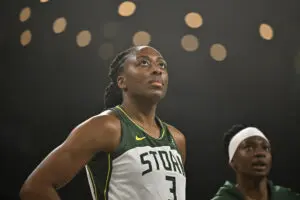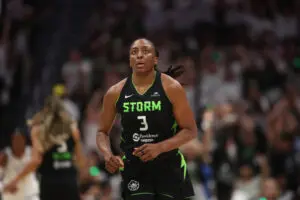By now, it’s well known that the 1999 FIFA Women’s World Cup drastically shifted the way people viewed women’s soccer in the United States.
The World Cup, which was hosted in the US, averaged close to 38,000 spectators per match, with a total attendance of 1.94 million, a record that stood until 2015. Television ratings were likewise historic, with viewership for several matches breaking domestic soccer records for channels like ESPN and ABC. The tournament was also a massive financial success, with a $4 million profit on its $30 million operating budget.
When the USWNT won the final in a penalty shootout against China, the team became the first women’s team to win the tournament twice (their first title came in 1991).
The women on the team became overnight celebrities. Embarking on a well-received victory tour, their team bus had to travel with a four-motorcycle escort due to excessive fan interest. Richard Finn, who was the director of public relations for the tournament at the time, compared the frenzy to the Spice Girls, the Backstreet Boys, and the Beatles.
The winning team (nicknamed the ‘99ers) featured players like Mia Hamm, an explosive forward player who had incredible technical ability and was a consistent goal-scorer; Tiffeny Milbrett, a constant menace for opposition defenders; and Michelle Akers, a tenacious and powerful defensive midfielder.
But a name that still goes under-mentioned is that of goalkeeper Briana Scurry.

Keepers, in general, are often under-celebrated compared to their teammates; they aren’t as flashy, they don’t score goals, and they are often seen as having less work to do. But make no mistake, the ‘99ers don’t become the iconic team everyone knows them to be without Briana Scurry.
Scurry first debuted with the USWNT back in 1994. By 1995, Mary Harvey, the USWNT’s starting keeper, was in the twilight years of her international career, which paved the way for Scurry to step up during the 1995 FIFA Women’s World Cup.
The team went home with a bronze medal after losing to eventual tournament winners Norway in the semi-finals and beating China PR in the third-place playoff. Most memorably during that tournament, Scurry was sent off in the 88th minute during a group game against Denmark, after the then 23-year-old stepped out of the box with the ball in her hands in an attempt to kick the ball upfield.
By that time, the USWNT was up 2-0, but head coach Tony DiCicco had already used all three of his substitutes, which forced him to play Mia Hamm in goal.
The trivial error proved not to be costly for the US, and in fact, most look back now and laugh. But the incident did show a glimpse of just how young and inexperienced Scurry was at the time.
Only one year later, Scurry proved that the silly errors were behind her, as she became the undisputed number one for the team and was able to help the USWNT bring home gold during the 1996 Summer Olympics in Atlanta.
Then came the 1999 World Cup. Scurry had a fantastic showing, only conceding three goals in the entire tournament, one during a 7-1 win against Nigeria in the group stages and two during a 3-2 win against Germany in the quarter-finals.
Scurry managed to keep a clean sheet in the final against China PR, which consisted of 90 minutes of regular time plus two halves of extra time.
Sun Wen, who was easily the best player for China, and who would go on to become one of the greatest women footballers of all time, was in the form of her life during the tournament. She had already racked up seven goals and three assists during the tournament (a feat that won her both the Golden Ball and the Golden Boot after the tournament).
Scurry kept her cool, though, keeping both Sun Wen and her teammates off the scoreboard. The keeper’s big moment came during the penalty shootout when she saved Liu Ying’s attempt. [Fast forward below to 8:35.]
Kristine Lilly and Hamm were then able to give the USWNT the lead after the save, but China’s Zhang Ouying and Sun Wen subsequently tied it up. Brandi Chastain then stepped up for what would prove to be the final kick of the game, as her penalty won the shootout 5-4, winning the World Cup.
Chastain’s celebration is now a part of sports lore. But her goal would have been meaningless had Scurry not made the earlier save.
Scurry’s historic deflection earned the USWNT their second World Cup title, a feat that no team had yet to accomplish. It also meant that Scurry was the first goalkeeper to win both an Olympic gold medal and a Women’s World Cup (she would be later joined by Norway’s Bente Nordby and fellow USWNT keeper Hope Solo).
Scurry and her nineteen teammates’ performance proved instrumental in pushing for America to develop its own professional league for women; at the time, no such league had ever existed. The twenty players demonstrated the need to invest in a game that was clearly growing in the country. The players succeeded, and The Women’s United Soccer Association formed in 2000. It became the world’s first women’s football league in which the players were paid as professionals.
The WUSA, a league made up of eight teams, had its inaugural season in 2001, with Scurry joining the Atlanta Beat. She was their starting keeper for three seasons until the league dissolved in 2003. While it may not have lasted, the WUSA paved the way for the emergence of both the WPS and the NWSL.
Scurry remained the USWNT’s starting keeper until about 2006, winning silver at the 2000 Olympics in Sydney (as a squad member; she could not play due to injury), gold at the 2004 Olympics in Athens, and a bronze medal at the 2003 FIFA WWC.

By 2007, at the age of thirty-six, she was relegated to second keeper after Hope Solo began to break through. Scurry played a couple of games during the 2007 WWC in China, in which the team won a bronze medal, but was not selected for the 2008 Olympics in Beijing and thus retired from international duty.
A year later, the WPS was formed, and Scurry was drafted by the Washington Freedom to play in their inaugural season. However, in her second season, she suffered a severe concussion and was forced to not only leave the WPS but retire from the game for good.
Scurry’s concussion proved to have a devastating impact on her life. She was unable to work due to persistent migraines, falling into a deep depression, to the point that the only thing keeping her from suicide was her mother, who was fighting her own battle with Alzheimer’s.
Scurry spent days just lying on her couch, waiting for disability payments to come through. She has said that she longed for a way to escape from the fatigue and pain, as well as her deteriorating financial situation.
Tragically, Scurry was forced to pawn off her two Olympic gold medals in order to make ends meet, a decision she says brought her physical nausea. Thankfully, in 2012, a friend connected Scurry with her now-wife, who was able to help her fight the insurance company and get both medals back.
In 2013, she had occipital release surgery, a surgery which relieves nerves in the back of the head from the pressure of the muscles compressing them. The surgery has helped with Scurry’s pain immensely. She is now an advocate for better resources for women who suffer concussions while playing football and who have symptoms like depression, anxiety, and high irritability. Scurry has also pledged to donate her brain to CTE research when she passes, a disease that affects so many athletes, yet remains under-researched and is impossible to diagnose in a living person.
Currently, you can find Scurry acting as a mentor for Trinity Rodman, who earlier in the year became the youngest player in NWSL history after being selected No. 2 in the draft. Rodman’s new team, the Washington Spirit, sought out Scurry, who served as an assistant coach to the team back in 2018, to provide the youngster a support system if need be.
For her accomplishments with the USWNT, Scurry was not only hailed as one of the best keepers in the world but praised as the sole Black woman on the USWNT during their success in the late 1990s and early 2000s. When the National Museum of African American History and Culture, a Smithsonian Institution museum, opened in 2016, she became a part of the “Title IX exhibit,” which showcased African American women who are “symbolic figures of black ability” and who “have taken their activism beyond the court: to the courtroom, boardroom, and the newsroom.”
In 2017, she was inducted into the National Soccer Hall of Fame, becoming the first Black woman and first female goalkeeper. The honor firmly cemented her status as one of the best to ever play.
The simple fact of the matter is the USWNT does not have the dominance it currently has in the women’s game without Briana Scurry’s performances on the pitch. Her play propelled the team to multiple major titles at a crucial point in its career, while her diving save in 1999 secured perhaps the greatest win in the sport’s history.
Combined with her advocacy off the pitch and the inspiration she has become to so many young Black women, it’s no wonder that Scurry has become an icon of the game. She deserves to not only be celebrated during Black History Month, but for every month that follows, as one of greatest and most influential players to ever take the field.
